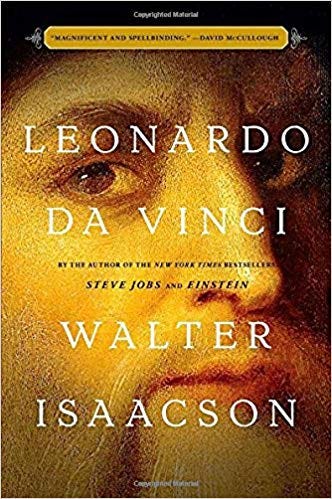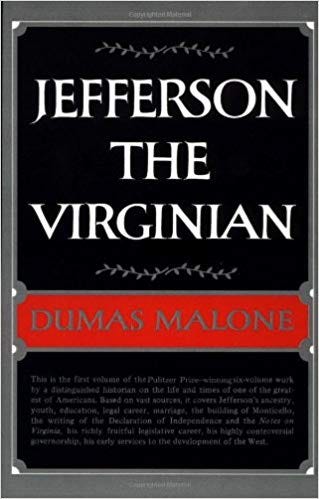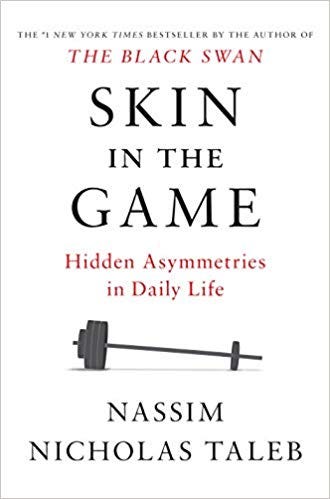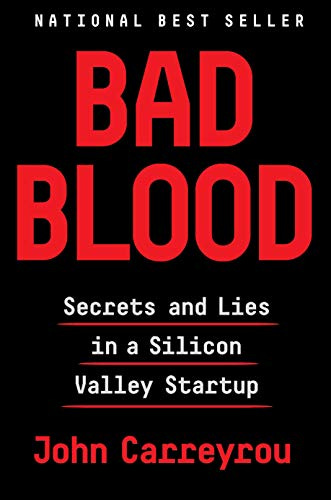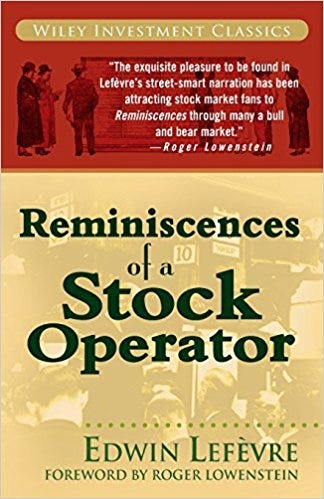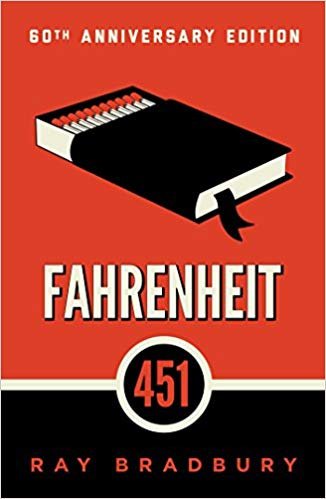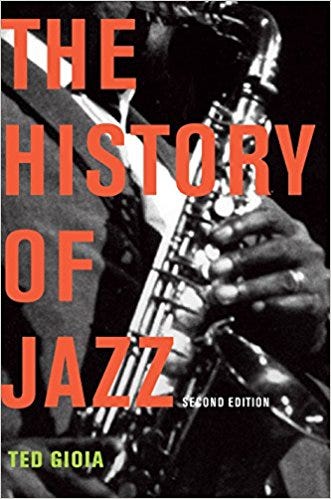Great books represent a terrific value proposition. For a modest amount of money, or even free of charge at the local library, a reader can gain access to some of the greatest minds in human history. We take it for granted today that most people can afford to read whatever they want, but this has not always been the case. Books used to be indulgences available mostly to the wealthy. Thomas Jefferson, who spent a fortune on his books, would be amazed by the selection and pricing on Amazon.com!
The ten books listed below, in no particular order, include some old classics as well as newer releases. Most of them are not related to investing. They are simply books that I have read over the past year and could be interesting selections to read over the holidays or to purchase as gifts.
All Quiet on the Western Front
World War I officially ended just over a century ago on November 11, 1918. Veterans Day this year marked the occasion, although the last American veteran of WWI unfortunately did not live to see it. The horrors of this war are described in this novel from the perspective of a young German soldier. The Great War was thought to be “the war to end all wars” due to the extreme misery brought about by modern warfare and the determination of leaders in the post-war period to spare future generations of the same fate. A century later, we know that these hopes were anything but fulfilled. War remains a constant presence and is more deadly than ever, with the added danger of global annihilation if nuclear war is ever allowed to break out. This novel, originally published in 1928, tells the story from the perspective of an author not yet aware of the horrors that the coming years would bring.
The nature of research and development is that some ideas that seem initially promising may never lead to commercially viable opportunities. Short term thinking and faulty incentives can lead executives to view R&D as a cost center rather than as a potential driver of future growth. This book provides a history of Bell Labs, a remarkable institution that spanned six decades during the middle years of the last century and was responsible for numerous important innovations. The angst over American business “no longer investing” is somewhat overstated given the tremendous success of American technology companies in recent years. Shareholders with longer term horizons should encourage intelligent long term R&D investments and avoid setting up incentive systems for managers that are excessively short term oriented.
If you have ever wandered through an art gallery in awe of what you are looking at but lacking any real understanding, Walter Isaacson’s wonderful biography of Leonardo da Vinci should be required reading. Even those who normally read books on Kindle should purchase the physical hardbound copy because the book itself and the illustrations are very aesthetically pleasing. Although the book is quite long, it is structured in such a way that most readers with intellectual curiosity will not be bored. I read this book prior to a trip to Chicago in late 2017 and I think that it led to a greater appreciation of the art located in the Art Institute of Chicago and the Driehaus Museum. Leonardo was a remarkable character with diverse interests and a true multidisciplinary mindset and a study of his life is well worth the time spent.
Jefferson and His Time: Volume 1
There are obviously many biographies of Thomas Jefferson but none provide the level of detail in Dumas Malone’s epic six volume biography written over the course of several decades starting with the publication of Jefferson The Virginian in 1948. Each book covers a specific chronological period in Jefferson’s life and provides much more detail than would be possible in a single volume biography. Many readers might not desire this level of detail and would be better served with a modern biography. But those fascinated by the man or a specific period in his life might want to pick up one of Malone’s volumes. I have read the first three volumes and found all of them to be worthwhile. However, some readers may find Malone’s treatment to be overly deferential to Jefferson on the slavery issue and the books pre-date the DNA evidence related to Jefferson’s relationship with Sally Hemmings.
Nassim Nicholas Taleb despises “book reviews” and heaven help the reviewer who attracts his ire on Twitter. Taleb makes a good point that a book that can be reviewed, or synthesized into some set of basic points, is not one that is worth reading. A book must stand on its own and not be subject to summarization. Skin in the Game is the latest volume in Taleb’s Incerto series, described as “a landmark five-book investigation of uncertainty, chance, volatility, risk, and decision-making in a world we don’t understand”. To get a flavor of the book, read The Intellectual Yet Idiot, a critique of the policy makers who would tell us “what to do, what to eat, how to speak, how to think, and who to vote for”. Taleb’s style will rub some people the wrong way, but anyone with intellectual curiosity (who is not an IYI) will benefit from a serious consideration of his arguments.
If you are looking for a book that will get your blood boiling, pick up a copy of John Carreyrou’s epic reporting on Theranos, the fraudulent blood testing company founded by Elizabeth Holmes. With the aid of her accomplice, Ramesh “Sunny” Balwani, Holmes managed to deceive a cast of characters operating at the highest levels of venture capital and politics. Theranos released products that flat out didn’t work or produced unreliable results for important medical tests that doctors and patients relied on. This went on for much longer than it should have, in part due to the fact that Holmes managed to assemble a board of directors that knew little about medicine but was well connected in the political and business worlds. It is important for investors to be skeptical about young leaders with new ideas, but not to be unreasonably cynical. The Theranos saga makes it difficult not to tilt too far toward cynicism.
Reminiscences of a Stock Operator
The more things change, the more they stay the same. Anyone who has observed the cryptocurrency bubble over the past year might think that we’ve never seen anything that crazy in the past, but that is incorrect. Originally published in 1923, Edwin Lefèvre presents a fictionalized account of the early life of “Larry Livingstone”, but Livingstone is really a pseudonym for Jesse Livermore. Livermore’s career began as a teenager in the “bucket shops” of the 1890s where he learned to speculate on securities. What he engaged in was what we could call “day trading” today. His career spanned several decades and he made and lost fortunes several times. Livermore was a speculator, not an investor, but his observations and anecdotes are valuable for anyone interested in the mentality behind market madness. Again and again, the reader comes across statements that would ring as true today as they did a century ago.
This book might be best paired with 1984, George Orwell’s classic dystopian novel. Both novels deal with societies that have become totalitarian tyrannies barely recognizable to anyone living in a free society today. In the case of Fahrenheit 451, books are banned and “firemen” are employed to immolate books and any homes in which they are found. Like in 1984, the protagonist of this novel is just a cog in the totalitarian machine, yet a part of him remains that values freedom and rebels against tyranny. Americans often take for granted our constitutionally protected rights, but they are under various assaults constantly. It is worth reading novels dealing with the polar opposite of a free society just to remember that the state of affairs we enjoy is not inevitable and must be vigilantly defended whenever it is threatened.
The Complete Works of Montaigne
Any list of the “great books” of western civilization will inevitably include the essays of Michel de Montaigne. Montaigne was born in 1533 in the Bordeaux region of France. As a member of a wealthy Catholic family, Montaigne received a classical education. Interestingly, his native language was Latin since French was prohibited in his household until the age of six. After a brief career in public service, Montaigne retired to the family estate at the age of 38 to devote himself to various intellectual pursuits. Despite Montaigne’s elite standing in his society, his essays come across as down-to-earth and are surprisingly accessible to the modern reader, at least in Donald Frame’s translation. Although lengthy, this book can be read over time since the content is comprised of relatively brief essays on various subjects that stand on their own. So far, I have completed Book 1 of the essays and look forward to reading Books 2 and 3 along with the included travel journals and letters.
Ted Gioia’s book is a comprehensive account of the evolution of jazz. The story is primarily about the individuals who defined this musical genre over many decades but it is also inextricably linked to the evolution of American cities such as New Orleans, Chicago, Kansas City, and New York. Gioia spends considerable time providing insight into the social context of the music, especially within the African-American community. Although at certain points the book delves into more detail than the casual jazz fan might prefer, it is still engaging especially if you listen to YouTube recordings of the various artists he covers. In fact, it is probably impossible to enjoy this book without pairing it with the actual music. One sad aspect of this book involves the early deaths of many of the musicians which is an unfortunate trend that extends to the history of rock and roll as well.
Disclosure: The Rational Walk participates in the Amazon affiliate program and receives a small commission for all products purchased via links on this site.




